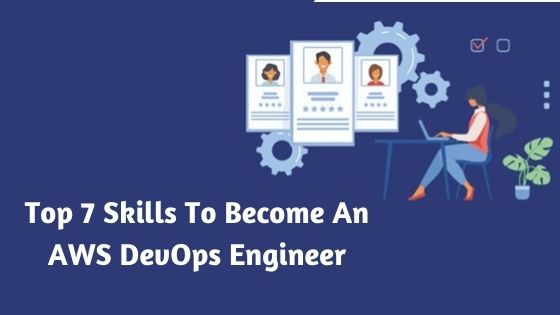Here we will discuss some of the most important and top 7 skills to help you become an AWS DevOps Engineer. Read on to find out what those are:
Continuous Delivery
You must have a good-level knowledge of Continuous Delivery (CD) theory and its concepts for fully understanding its real-world applications. What you need here is good working experience in CD systems and tools and a deep understanding of its internal workings to help you decide the best-integrated service to create a fully functional and unified delivery pipeline. You must play different roles in the software release processes to commit, merge, build, test, package, and deploy code.
For an AWS DevOps Engineer, you must know various AWS Services for CD Pipelines, like AWS CodeBuild, CodePipeline, and CodeDeploy. There are other tools and systems for the CD that you must become familiar with are, GitHub, GitLab, Jenkins, Travis, etc.
Cloud
You need to know about your cloud-native services and their pros and cons. You must know various things about AWS Services and the best practices in place. Many teams within your group will ask you for your suggestion and recommendations on which AWS Service. Which one to use and how to use it. Sometimes a non-AWS service is better than an AWS Service. So, you must know these services, their shortcomings, and the technical nuances involved to help you guide better.
Being an expert in AWS means you can architect and build AWS systems, decode cloud system’s complexities, and assure while utilizing a cloud service, the best practices are in place. You also have to measure the advantages and disadvantages of using PaaS or IaaS services along with managed services while you design and recommend solutions. If you are aspiring to break into the AWS DevOps domain, check out this AWS Certified DevOps Engineer Training.
Observability
It is a critical skill to have while pursuing a career in DevOps. DevOps Engineer must ensure that applications along with depending systems it runs on must properly monitor, log, and alert solutions. APM (Application Performance Monitoring) helps DevOps teams to look into the internal workings of applications. It makes debugging custom code easier. You must be proficient in Amazon CloudWatch (that includes CloudWatch Logs, CloudWatch Events, CloudWatch Agent, and CloudWatch Alarms), Amazon Elasticsearch, Amazon SNS, and a few other services.
IaC (Infrastructure-as-code)
All the systems must be made in a manner that is repeatable using IaC tools like Terraform, CloudFormation, and AWS CKD (Cloud Development Kit). This approach ensures that all cloud objects are recorded as code, version controlled, and could reliably be replaced by using provisioning tools of IaC. It is the responsibility of the AWS DevOps Engineer to ensure it is done without fail.
Configuration Management
Let’s talk about IaaS or Infrastructure as a Service side for Virtual Machines (VMs). Once you launch EC2 instances, you must ensure that the configuration and setup must be ordered with the Configuration Management tools like Chef, Ansible, and Puppet. For enterprises that run on Windows can use Powershell DSC for this purpose.
Containers
With the introduction of container technologies, many companies are shifting to this modern technology from the traditional mode of deployment. In this containerized deployment model, configuration management is not that important. Instead, there are many tools related to the container that you must be aware of. Some of the tools used here are Docker Engine, Kubernetes (for orchestrating containers, which again contains a whole lot of their apps and other services under its purview), Docker Swarm, container registries, etc.
Operations
Within DevOps, Operations is the other half. It is most concerned with the process of logging, monitoring, and alerting. If these three are managed well, you can operate, run and properly handle production systems. Another major aspect of the Operations role within DevOps is to respond, troubleshoot, and resolve issues that occur in the Software Development and Release Cycle. If you aspire to become a DevOps engineer, then you must gain proficiency in working with and know how to troubleshoot operating systems (OSs) like Amazon Linux, Ubuntu, Windows, RedHat Enterprise Linux, and CentOS to be able to effectively respond and resolve Operations issues.
You must also be well-versed with web servers (Nodejs, Apache, Tomcat, Nginx, and others), load balancer, and other application environments and their runtimes. Having good working knowledge in Database administration will prove to be very important for a DevOps role. For being successful you must know Data stores like MySQL, PostgreSQL, etc. It’s expected of you to be able to work with SQL code. Familiarity with NoSQL databases like MongoDB, Cassandra, AWS DynamoDB, etc.
Summing Up:
These are all the most important skills that being an AWS DevOps Engineer you must possess. But you must also have an eye on Automation and increasing your teamwork and communication skills as they are the pillars of DevOps Culture.




















